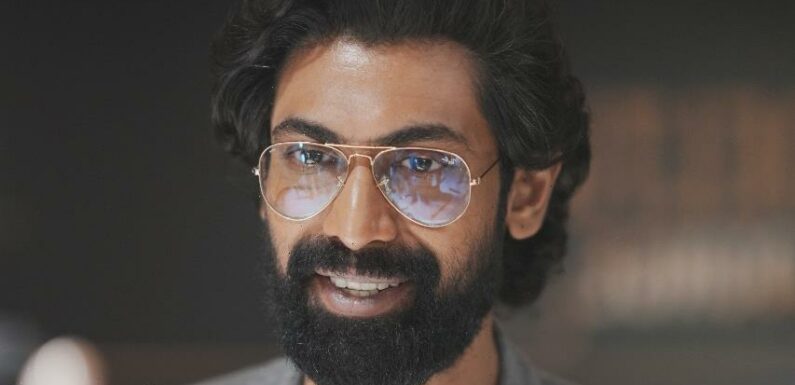
EXCLUSIVE: While the world is currently in thrall to S.S. Rajamouli’s RRR, South Indian star Rana Daggubati was part of the first wave of Telugu cinema to sweep the globe – starring in Rajamouli’s Baahubali: The Beginning and Baahubali 2: The Conclusion, in which he played the bad guy, Bhallaladeva.
Attending the International Film Festival of India (IFFI) in Goa, Daggubati talked to Deadline about the global expansion of the Hyderabad-based, Telugu-language film industry, his upcoming Netflix show Rana Naidu, and some of the changes that have rocked the Indian industry over the past few years.
Related Story
International Film Festival Of India Jury President Nadav Lapid Slams Fest For Inclusion Of "Propaganda Movie" 'The Kashmir Files' In Competition
First off, Daggubati says that, while it’s exciting that global audiences are embracing Telugu movies, they’ve always had a huge audience among Telugu-speaking Indians living overseas. Here in India, there’s more excitement around the fact that Indians who don’t speak Telugu have also started to watch these films.
“Baahubali was not just the first Telugu film that the West watched, it was also one of the first Telugu films that India watched within ourselves,” Daggubati says. “That was the first time it was accepted that cinema from all different parts of India can land across the country and do a good job.”
Several other “pan-Indian” blockbusters in different Indian languages have been released since then – RRR, the K.G.F. franchise and Kantara, which Daggubati says “created an Indian moment” and started to change the way that local films were being distributed and released.
“Whereas you speak one language and have one center in Los Angeles, here in India we have several industries in different cities with ecosystems of their own,” he continues. “We are all different, creatively, business-wise and in the culture that we were coming from. So this is the first time that we’ve started making stories for the whole of India. In the next couple of years, there’ll be a lot more of these movies that you’ll hear about.
Daggubati is unusual in that he’s one of the few Indian stars who already works across all these industries – he’s also starred in Hindi-language (a.k.a. Bollywood) films such as Dum Maaro Dum and Tamil film Bangalore Naatkal. He’s also a producer through his family’s firm Suresh Productions, a VFX producer through his Bangalore-based Spirit Media and runs a business accelerator programme for technology startups Anthill Studio.
He predicts that the kind of crossover he’s been involved in will become commonplace in India. “It’s already started in some ways – you see enough companies from the Hindi industry that are producing South Indian content, and seeing producers from the south making Hindi movies. It’s just that it’s becoming easier now because the distribution mechanisms are starting to fall in place.
Daggubati’s upcoming Netflix show, Rana Naidu, is a Hindi adaptation of U.S. crime action series Ray Donovan, produced by Sunder Aaron under the banner Locomotive Global. Daggubati plays the Ray Donovan character, a fixer who cleans up messes for Bollywood stars, sharing screen space for the first time with his uncle, Venkatesh Daggubati. Karan Anshuman (Inside Edge, Mirzapur) is showrunner with Suparn Verma joining him to co-direct.
“This is definitely a format that I want to understand and be a part of,” says Daggubati, who previously took part in Banijay Asia’s reality show Mission Frontline. “What’s happened in the last couple of years, with the way cinema and audiences are changing, is that there’s no longer this pressure that to have a successful career you have to do two or three films a year. That’s what I learned on Baahubali – we spent six years making one film, but it changed the course of history. Now you don’t know what you’re doing next but something really new is going to come along.”
While the streamers have started making content in Indian languages other than Hindi, the OTT revolution hasn’t hit the South Indian content industries to quite the same extent it has in Mumbai, the home of Bollywood. Most of the big stars, writers and directors in the South of India are still focusing on making movies. But things are starting to change.
“India as a country never had premium television – we made very long soaps and big-ticket films – so we had these two skillsets,” Daggubati explains. “We’re still growing in the department of writing and literature in that sense of long-form premium content. It’s a very different format to cinema, especially in the way that actors and the audience engage.”
So has Mumbai had a head start in producing series and streaming content? “It’s just that all the global heads of these streamers land up there,” he smiles. “So the teaching happens there first, then slowly starts to devolve.”
But he adds that South India has some excellent writers, so watch this space. “They’re more localized, because many of the writers and filmmakers in Mumbai have lived there for a long time, but in the South there’s a lot more diversity. The cream of the filmmaking community is from smaller towns and they have more of a connection with the audience locally.”
Must Read Stories
Mark Burnett Exits Amazon’s MGM; Will Return To Producing & Oversee “Legacy” Series
‘Strange World’ To Lose $147M: Why Theatrical Still Was Best Road For Toon
Bob Iger At Town Hall: Hiring Freeze Still On, No Apple Merger Or New Acquisitions
‘Everything Everywhere’, Deadwyler & Field Win Big; Spielberg Out With Covid
Read More About:
Source: Read Full Article



